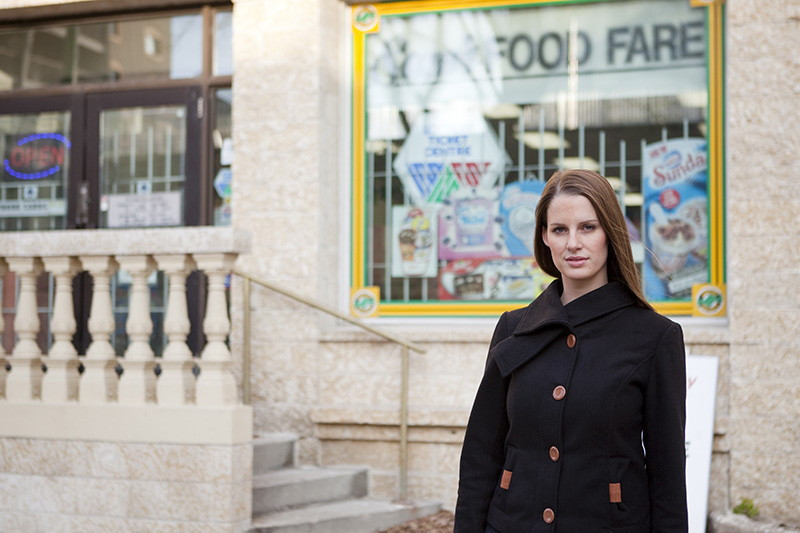Impending downtown grocery store closures leave ‘food desert’ in their wake
Critics discuss potential affects to health, development of area
As two of downtown’s full-sized grocery stores prepare to close their doors in the coming months, some area residents are beginning to consider the effects living in a “food desert” might have on their stomachs and their wallets.
On Nov. 24, the Extra Foods located at 600 Notre Dame Ave. in the West End will shut its registers for good, while the HBC-owned Zellers beneath the Bay’s iconic Portage and Memorial address will pull out of the building’s basement in March.
Jino Distasio, director of the University of Winnipeg’s Institute for Urban Studies, worries the impending decrease in fresh food availability could have an adverse impact on development in the area.
“We’ve got to hope this isn’t the start of a domino effect,” said Distasio. “If we really want to foster a sense of vibrancy in our downtown, grocery stores are going to be an invaluable component of that.”
Julie Rempel, community food assessment coordinator for Food Matters Manitoba (FMM), a charitable organization that promotes healthy, sustainable and fair food practices among consumers across the province, says downtowners’ access to fresh produce poses a problem for their nutritional health.
“If individuals are faced with having to take extra buses or cabs, or they have to walk long distances (to grocery stores), a lot of the time they end up just shopping at the convenience stores instead, which usually only sell high-energy, low-nutrition packaged foods,” said Rempel. “Bad availability in terms of real, fresh food can potentially lead to a lot of negative health impacts in a community.”
FMM has conducted food assessment surveys across the city, taking into consideration the ubiquity of grocery and convenience stores, but has yet to do the same for downtown.
The organization plans to eventually tackle the inner city at some point in the future, Rempel said.
Karly Epp, a teacher and downtown resident, admits to being a frequent convenience store shopper. Despite realizing she could be eating healthier, Epp says she comes for the shops’ namesake, not its quality.
“I am all about convenience,” said Epp. “That’s one of the reasons I love living downtown - because you’re so close to so many of the things that the city offers.”
A busy schedule combined with a lack of fresh, affordable grocery sources nearby, however, often results in a diet that Epp knows could stand to be improved.
“Because (reasonably priced) fresh stuff isn’t readily available, it’s not something that gets to be a part of my regular diet,” she said.
Mark-Jan Daalderop, coordinator for Winnipeg Foodshare Co-op (WFC), a non-profit food distribution program, says inner city residents feeling the food desert heat should consider a new way of achieving their healthy-eating goals on a budget.
Through its Good Food Box program, WFC makes weekly deliveries to depots across the city - 18 of them downtown - where anyone can purchase variously sized, pre-packed containers of produce fresh from local farmers.
The organization aims to pass nutritional and economic benefits to its clients by removing the middleman, with buyers saving 15 to 20 per cent off big grocery store prices, Daalderop said.
“There’s a lot of focus in the food system on profit-making and centralized control,” said Daalderop. “We’re really just interested in giving people the option of eating healthy without having to overpay.”
According to Distasio, the IGA that occupies the ground floor of an apartment complex on 120 Donald St. near Broadway, stands as one good example of successful community integration that will hopefully spur similar developments.
“We’ve got to try to figure out how to penetrate the downtown proper,” said Distasio, who indicated the Portage Avenue skywalk system might be an appropriate place to locate another grocery store due to its increased accessibility for the nearby elderly.
Published in Volume 67, Number 9 of The Uniter (October 31, 2012)








